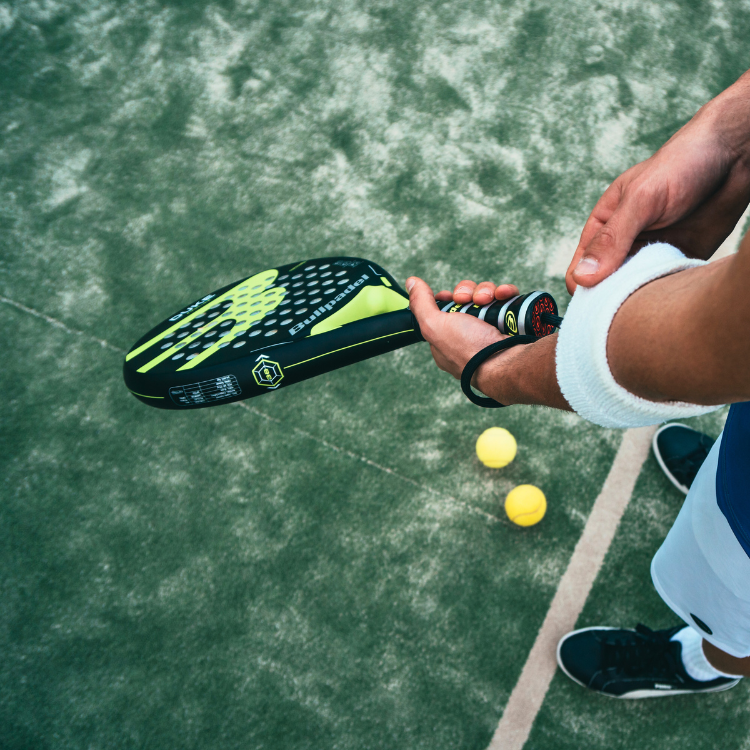
How to Play Padel? A Comprehensive Guide to Understanding Padel Rules
Whether you're brand new to padel or just looking to sharpen your game, understanding the official padel rules is the fastest way to build confidence and start winning. Padel blends elements of tennis and squash, but it has a rhythm—and rulebook—of its own.
In this guide, we break down how to play padel step by step, from serving and scoring to movement, positioning, and that all-important 40-40 rule .
In This Article
Padel equipment: What you need to play
Serving rules explained
How padel scoring works
What is the 40-40 rule in padel?
Understanding court walls & gameplay
Team positioning & doubles etiquette
Winning tips for new and improving players

What Do You Need to Play Padel?
To play padel, you need just a few essentials:
A certified padel racket (not a tennis racket)
Pressurised padel balls
A proper padel court , enclosed with glass walls
Typically, four players for doubles play (the standard format)
Want a racket that meets all official rules and plays like a dream? Check out our top picks at the end of this guide.
How to Serve in Padel (The Right Way)
Serving is underhand and must follow these official rules:
Both feet behind the service line
Ball must bounce once before being struck
Serve diagonally into the opponent’s service box
Walls are allowed only after the ball bounces in the correct box
You get two serve attempts , just like tennis
The ball must be hit at or below waist height
No overhead smashes here— control beats power when it comes to serving in padel.
How Padel Scoring Works
Scoring in padel is identical to tennis:
0 (Love) → 15 → 30 → 40 → Game
Win 6 games with a 2-game lead to take a set
Matches are typically best of 3 sets
If it’s 6-6 in a set, a tiebreaker decides the winner
Now let’s cover the one scoring rule that gets the most questions...
What Is the 40-40 Rule in Padel?
When both teams reach 40-40 , it's known as deuce. Here's what happens next:
Option 1: Traditional Rule
One team must win two consecutive points
First point = advantage , second = game
Option 2: Golden Point Rule (used in most professional matches)
At 40-40, a single deciding point is played
The receiving team chooses who returns
Winner of the point wins the game —no advantage, no second chance
The Golden Point keeps matches fast-paced and intense, especially in tournament play.
How the Walls Work in Padel
Padel courts are enclosed by glass and mesh walls , and they're part of the game:
The ball can bounce off the walls after hitting the ground
You can also use your own wall to return shots (advanced technique)
The ball must bounce before hitting the wall
If the ball hits the wall first (without bouncing), it’s out
You can volley (hit the ball in the air), but not during a serve return
Doubles Play & Partner Positioning
Padel is usually played in doubles, so communication is key.
On Serve:
Server stands behind the service line
Partner stands near the net, ready to intercept
On Receive:
Both players cover the middle and wide angles
Communicate on lobs, cross-court shots, and quick volleys
If your partner moves forward, you cover behind and vice versa
Net Etiquette & Sportsmanship:
Never touch the net or net post during a rally—it’s an automatic fault
Don’t distract opponents —visual or verbal interference is penalised
Call lines fairly and replay disputed points in casual games
In friendly matches, settle unclear points by consensus or replay
Mastering positioning and communication turns two players into a true team.
Common Mistakes to Avoid When Playing Padel
Even experienced players slip up on basic padel rules. Watch out for these:
Using a tennis racket instead of a certified padel racket
Overhead serving —remember, serves must be underhand
Crossing the service line before striking your serve
Returning a serve before it bounces —that’s illegal
Touching the walls before the ball lands on your side
Swinging wildly instead of focusing on placement and control
Knowing the rules isn’t just about avoiding faults—it’s about building a smarter game.
Padel Tips for New Players
If you're new to padel, here’s how to build a strong foundation fast:
Master the underhand serve with consistency
Learn to lob defensively when you're under pressure
Practise wall rebounds —they’re not just legal, they’re strategic
Stay low and balanced —mobility beats brute strength
Work as a team —good doubles play is all about court coverage
Play by the Rules, Win with Confidence
Now that you’ve learned how to play padel , the scoring, the 40-40 Golden Point rule, and all the key mechanics, you’re ready to hit the court with real confidence.
Whether you're a first-timer or brushing up your game, knowing the rules gives you a true edge.
